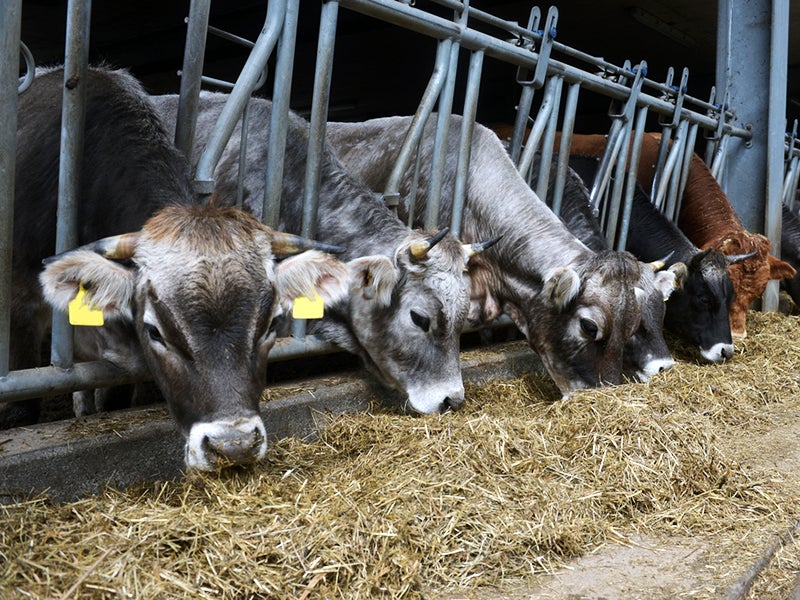Community Has a Beef with Local Water Board Over Polluting Slaughterhouse
The largely Latino community of Brawley, California, is already exposed to a lot of pollution, but plans to reopen a beef slaughterhouse could make local water quality even worse.

This page was published 10 years ago. Find the latest on Earthjustice’s work.
“Where’s the beef?” In 2014, a beef slaughterhouse in Brawley, California owned by National Beef shut its doors citing a shortage of cattle. The facility was plagued by accusations that the owners discharged large amounts of polluted wastewater into the city’s water treatment plant. When the slaughterhouse was shuttered, locals got a break from its environmental impacts. But the reprieve was short-lived.
The city of Brawley, where Latinos make up more than 80 percent of the population, is already one of the most overburdened communities of color in California. Pollution from transportation, field burning and pesticide use, along with dust from the evaporating Salton Sea, has resulted in poor air quality, making Imperial County, where Brawley is located, home to the highest rate of asthma-related hospitalizations in the state. And water pollution is still a critical concern in Brawley, where the local New River remains one of the most polluted rivers in the country. In response to this widespread environmental degradation, the community is speaking out against industries and practices that harm their environment and their health.
On January 14, the Colorado River Basin Water Board decided to allow a new company called One World Beef to resume operations at the slaughterhouse in Brawley. During a public hearing, community members adamantly opposed the company’s request to resume use of the onsite wastewater facility because of public health concerns. While the water board claims it was acting in the “best interest of the people of the state of California,” its own staff determined that wastewater discharged into unlined ponds at the One World Beef site could cause an increase in nitrate concentrations in groundwater that flows toward the Salton Sea. The board also confirmed that wastewater from this facility contains bacteria, ammonia, grease, oil, nitrates and petroleum hydrocarbons.
The board’s decision will allow One World Beef to begin using the wastewater facility without making necessary improvements to prevent damage to the community’s water quality. Beginning in February, the company will resume discharging wastewater from the facility into nearby groundwater through unlined ponds and to Brawley’s municipal wastewater treatment plant where processed water is then dumped into the New River, a tributary of the Salton Sea.
The Salton Sea is a terminal body of water that has become one of the most important migratory bird stopping points in North America and that is already threatened by reduced water inflows and increased salinity. The Salton Sea is also home to various fish species and is a recreational area where people kayak, camp and fish.
Earthjustice submitted comments to the water board on behalf of community members urging the board to prioritize the community’s health and water quality by requiring One World Beef to make improvements to the wastewater processing facility before reopening the slaughterhouse. The regional board ignored the community’s concerns and the contamination risk the plant imposes.
In making its decision, the board also ignored the potential impact this facility will have on the community’s access to water at a time when the state’s water supplies are dwindling and water costs are rising. The facility will demand a substantial amount of water during a time of water shortages throughout California. The wastewater facility will discharge as much as 200,000 gallons of wastewater per day, and that will increase to 400,000 by July, just five months after the slaughterhouse reopens. One World Beef will be allowed to discharge as much as 1,300,000 gallons of wastewater and to slaughter nearly 1,600 head of cattle per day by July 2018, though the company is not required to complete all of the necessary facility improvements until 2021.
Instead of considering the full range of impacts and the potential threats to water quality, the board presented a false choice between providing the community with jobs or protecting the quality of the water the community depends on. The board could achieve both goals without compromising the environment, but instead argued that the need for jobs in the area and the financial benefits to cattle feeders make it necessary to immediately reopen this facility. In making its economic assessments, the board ignored the quality of the short-term jobs that this facility would provide to the community and the record of wage-theft and other abuses that slaughterhouse workers experience. The board presented a skewed analysis in favor of industry—that ignored the potential long-term negative environmental, health and socio-economic impacts on the community—to justify its decision.
The regional water board did not act in the interest of the people of California when it adopted its order; it acted in the interest of a private corporation and set the stage for continued violations at this facility that threaten public health and water quality. As people across the country watch in horror as details of the water crisis in Flint, Michigan emerge, we need to ask ourselves what it will take for the agencies and officials tasked with maintaining our water quality, health and safety to act competently and compassionately. As the Flint disaster demonstrates, we must stay vigilant to keep officials accountable.
The California Regional Office fights for the rights of all to a healthy environment regardless of where in the state they live; we fight to protect the magnificent natural spaces and wildlife found in California; and we fight to transition California to a zero-emissions future where cars, trucks, buildings, and power plants run on clean energy, not fossil fuels.